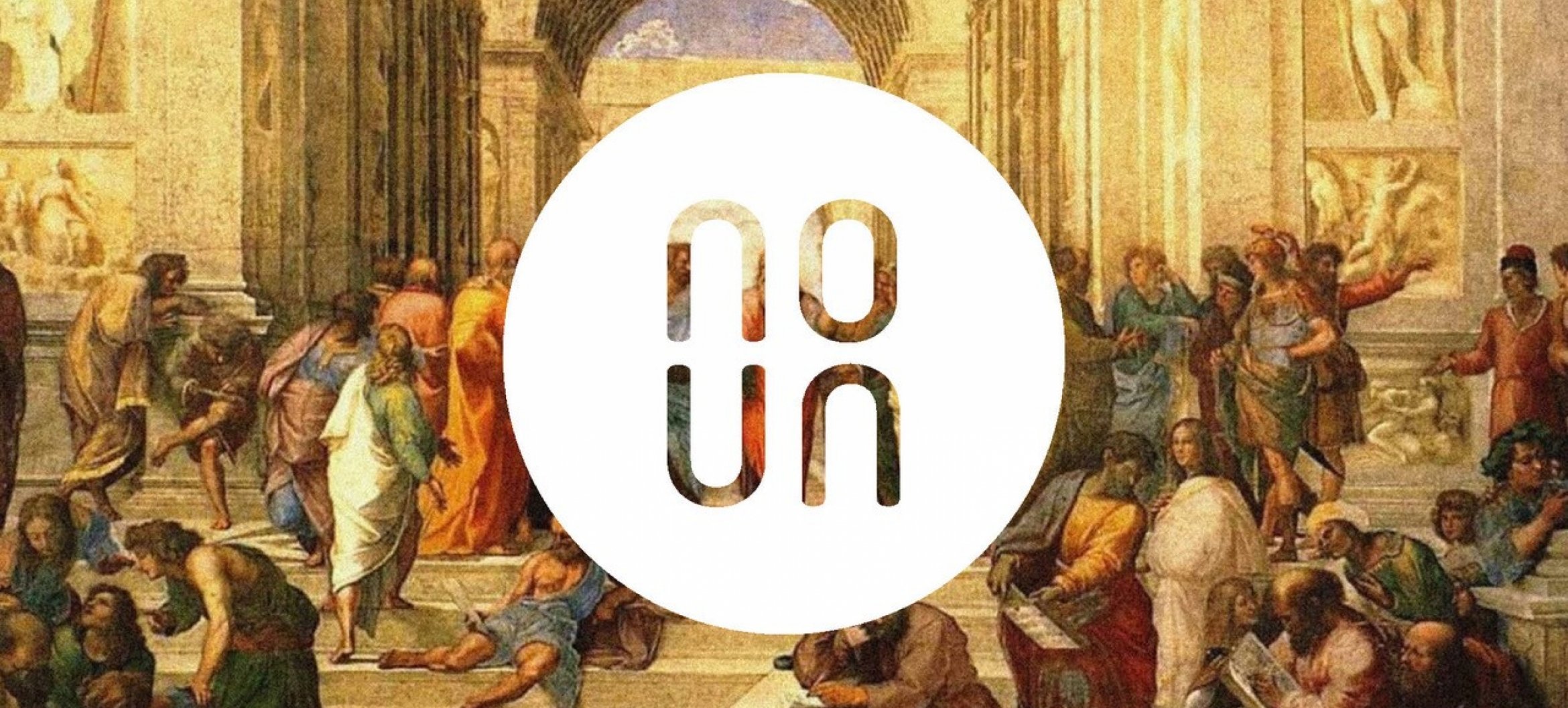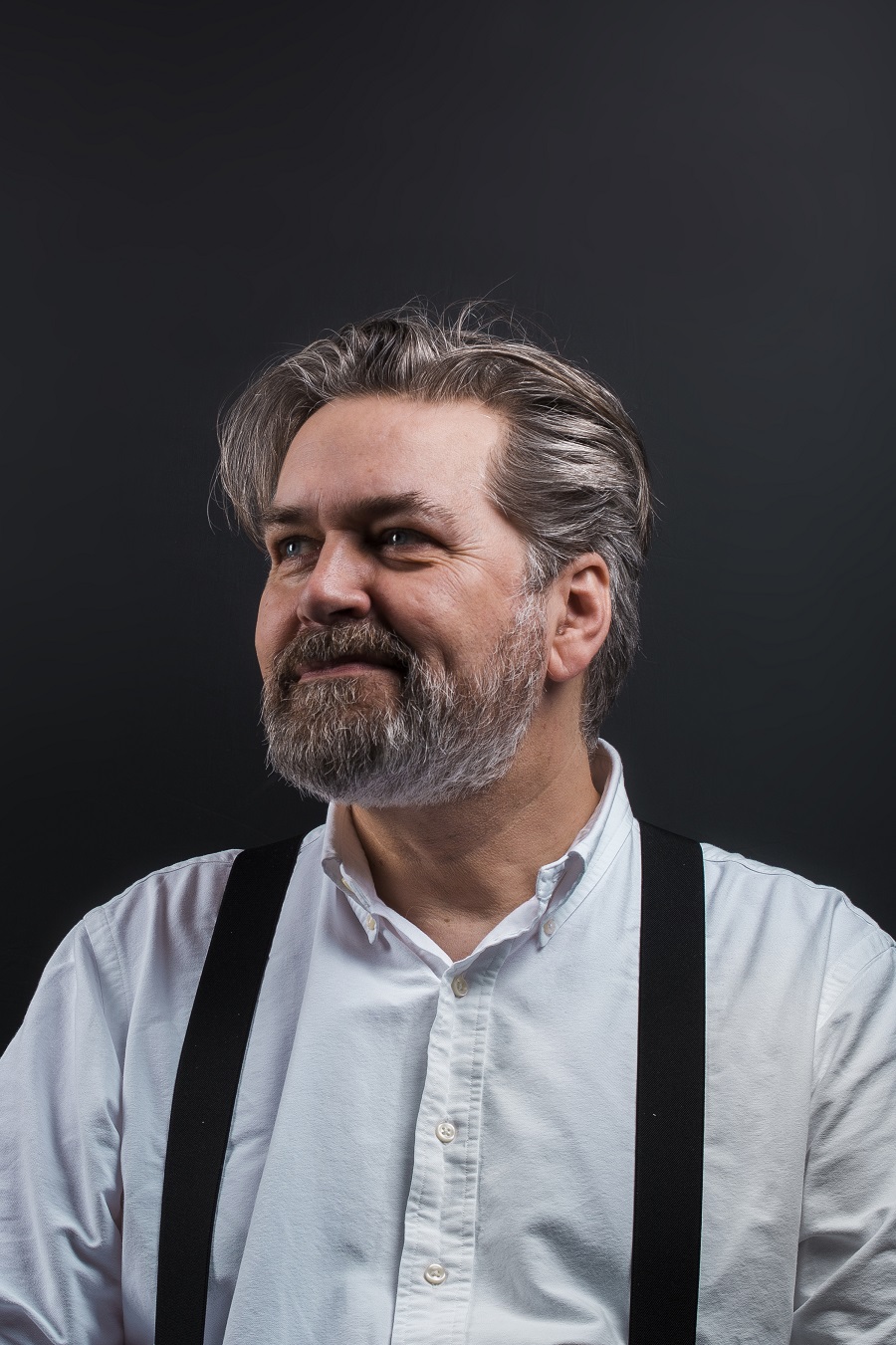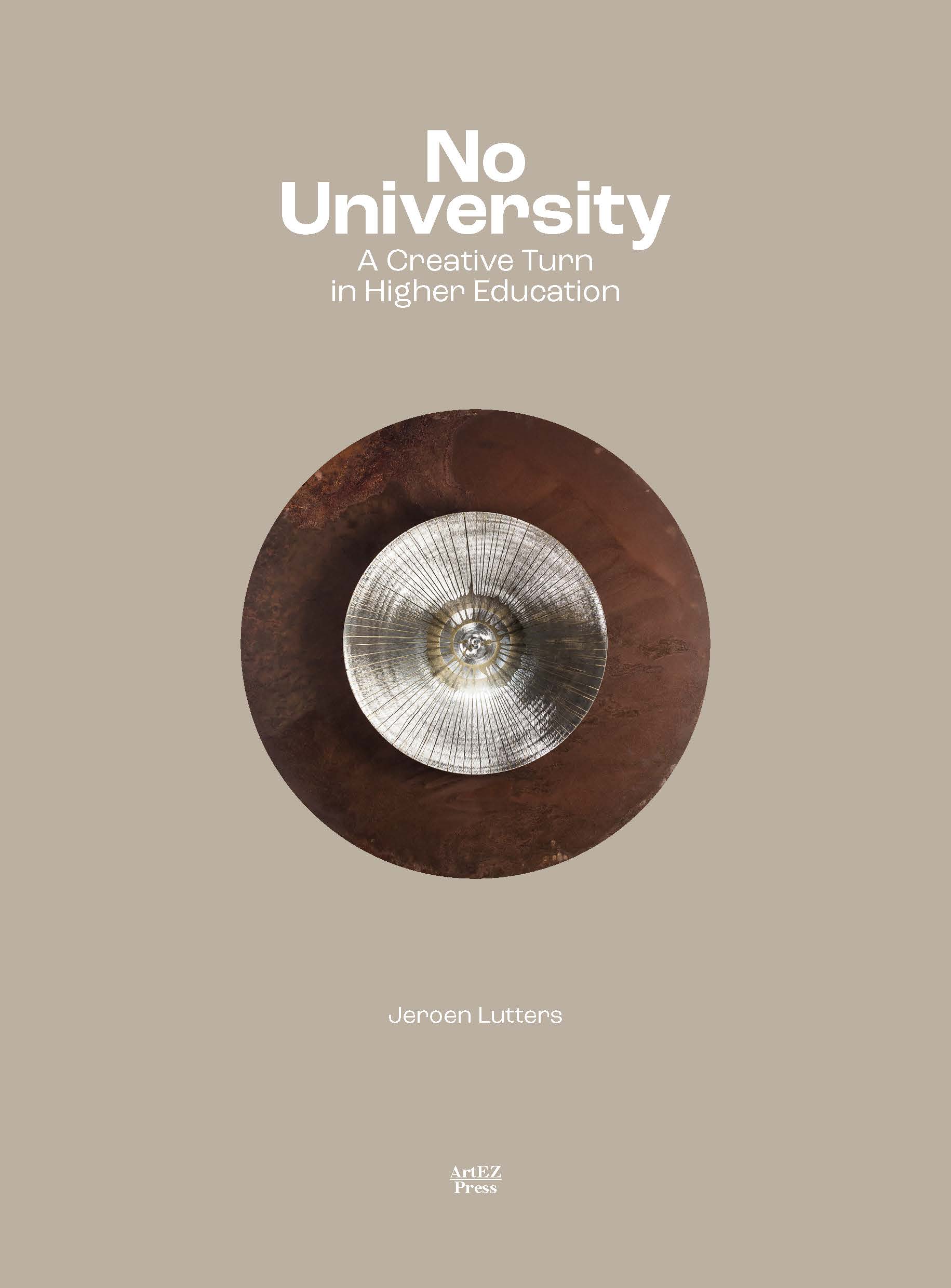No University: approach fundamental problems with head, heart and hands
No University – Center for Advanced Studies is a new movement that wants to break down walls in the academic world by enabling makers, artists and scientists to work together on a resilient, fair and sustainable society. Founder Jeroen Lutters, professor of the professorship Art education as Critical Tactics (AECT) at ArtEZ, wrote a book about its origin. He talks about this new movement which is taking shape this year in Zwolle.

Mass production
This experimental project is centered around the need for a new form of higher education, that contributes to a sustainable, equitable and resilient society. The intriguing name No University – Center for Advanced Studies was chosen for a reason. It tells a lot about the how and why, says Lutters.
"The first part of the name, No University, stands for how we position ourselves. It demonstrates the urgency of the problem. That problem is in the university. Since the start of the modern university in the sixteenth and seventeenth century, this institution has been framed as purely rational and focused on efficiency. Following the Enlightenment and Industrialisation, this became even more the case. It developed into an institution of mass production that embarked on a marriage with the capitalist world. The university as church of the new world. That produced segregation: people who think, people who feel and people who create were separated. In the sixties and seventies, the classic university was dismantled. As a result, the institute became more democratic, but also levelled out. Internally, little has changed. It has become a bureaucratic university."
Limits to growth

Lutters says that he consciously portrays it in black and white to clarify the problem. "The organisation of the university has brought a lot of positives, such as welfare, progress and emancipation. But also many negatives. With respect to the environment, equality and involvement, things have been going the wrong way for decades. Fifty years ago, the Club of Rome was talking about the limits to growth. We are now really reaching those limits. Look at the environment, economy and technology. Because of the organisation of the university, we can't move on to address this."
Build a community
The second part of the name, Center for Advanced Studies, incorporates the creative alternative, Lutters explains.
"Thinking, feeling and creating - head, heart and hands - must come together to study fundamental problems. We build a community with scientists, artists and makers. In a workshop, we explore issues. We also organise lectures and every four years a Manifesta over several days. This is something for the long term, 'slow thinking'. It normally takes thirty years to tackle big issues, that's a generation. We don't shy away from that, although we naturally also come up with interim results."
I see the Center as a joint venture. We are not founding a new institution, because that means building another wall, which is exactly what we want to avoid. We join existing institutions and connect the right people to each other. And it's about quality of work. We're not looking at disciplines and diplomas. I often say: the mafia organises itself better than good people, who often act as individuals. That needs to change.”
This is not something new, Lutters emphasises. "We have a couple of big international examples, like the Institute of Advanced Study in Princeton, where Robbert Dijkgraaf was director and where top scholars without the pressure to publish address fundamental problems. And the Royal Netherlands Academy of Arts and Sciences (KNAW) and Collège de France in Paris.”
Zwolle
This year, No University will take concrete shape in Zwolle. “With the University of Groningen, University of Twente, CIBAP, Windesheim and ArtEZ, we are studying the theme Next Generation 2050. Two postdocs and four PhD students will join us. There will be public lectures and a first try-out Manifesta."
The IJsselcentral will become a workshop for the movement. "Artist Ronald Westerhuis bought a large part of the power station. He wants to do more than create art there. With the community, we are going to look at the IJssel area in Zwolle. It's currently an empty area where they want to build housing. You can obviously build flats, but you can also think about how it should look in the future. How do you ensure that it isn't submerged in water, that it's sustainable? How do you keep the landscape intact? And what people will come and live here, not just poor or just rich people. At system level, the question is: what does Zwolle want to be in thirty years' time, with respect to education, governance and design. Together with the residents of Zwolle, this is something you need to think about in detail."
Constructive power
For Lutters, it was no coincidence that the movement crossed his path, as he describes in his book No University – A Creative Turn in Higher Education. Throughout his professional career, he has been building bridges between thinking, feeling and making. "It's a theme I keep coming back to. It's deeply rooted in me. When I speak at the university, I talk about the importance of art. At the art academy, I refer to the importance of scholarship. I try to break away from any form of insulation. It's something I consider monastic: we are all part of one cosmos. If you connect with all those parts, you get a constructive power, as Spinoza writes."
He does not consider himself the only leader. He was in the past, at the Bernard Lievegoed University. "Now, I'm more involved in the group. All the parties together, that's the thing. You create this together." And the idea of the movement is not just a plan that merely needs to be implemented. "That makes it too linear, when it needs to be investigative. We continue to embark on a dialogue with each other. And perhaps you will go in a completely different direction."
Turn the tide
Partly because of his children, who are in their early twenties, Lutters feels the urgency to get involved in big social problems. "I don't want them to say later: you only sat writing interesting books, but what did you do for the world? I want to turn the tide where possible. I want to contribute to tomorrow's world. You can't just leave it to the young generation to sort out."
Art education as Critical Tactics (AeCT)
The Professorship for Art education as Critical Tactics (AeCT) is invested in creating new futures of learning by producing research-driven critical tactics to shape the responsibility, infrastructure and practice of art and art education in the time of uncertain futures.
Follow Jeroen Lutters and No University
 On 13 April, the first lecture took place in the Academiehuis in Zwolle: 'Leading with an open mind'. Professor Patrick Nullens, Professor of leadership ethics and humane society at the University of Humanistic Studies (Utrecht), reflects on the fact that the city of tomorrow needs leadership with an open mind towards fellow humans, nature. On 23 and 24 September, the first Manifesta will take place in Perron038 in Zwolle, led by Arjen Hosper. More information about lectures AeCT.
On 13 April, the first lecture took place in the Academiehuis in Zwolle: 'Leading with an open mind'. Professor Patrick Nullens, Professor of leadership ethics and humane society at the University of Humanistic Studies (Utrecht), reflects on the fact that the city of tomorrow needs leadership with an open mind towards fellow humans, nature. On 23 and 24 September, the first Manifesta will take place in Perron038 in Zwolle, led by Arjen Hosper. More information about lectures AeCT.-
The book No University – A Creative Turn in Higher Education iis available at ArtEZ Press and in bookshops. More info: ArtEZ Press - No University
- More info is available on the projectpagina No University – Center for Advanced Studies